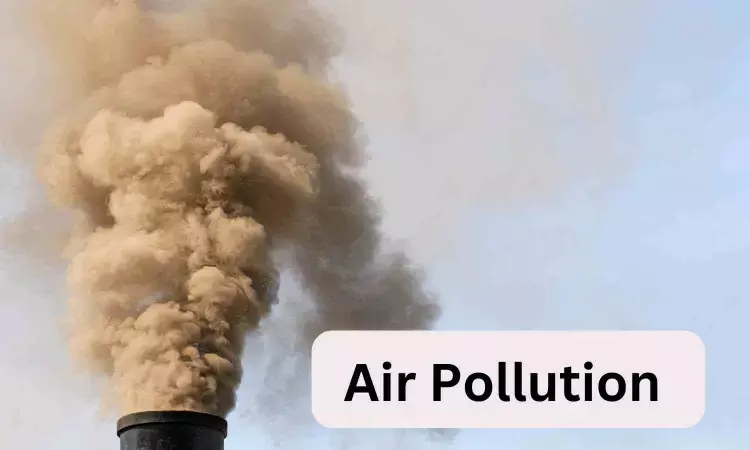- Home
- Medical news & Guidelines
- Anesthesiology
- Cardiology and CTVS
- Critical Care
- Dentistry
- Dermatology
- Diabetes and Endocrinology
- ENT
- Gastroenterology
- Medicine
- Nephrology
- Neurology
- Obstretics-Gynaecology
- Oncology
- Ophthalmology
- Orthopaedics
- Pediatrics-Neonatology
- Psychiatry
- Pulmonology
- Radiology
- Surgery
- Urology
- Laboratory Medicine
- Diet
- Nursing
- Paramedical
- Physiotherapy
- Health news
- Fact Check
- Bone Health Fact Check
- Brain Health Fact Check
- Cancer Related Fact Check
- Child Care Fact Check
- Dental and oral health fact check
- Diabetes and metabolic health fact check
- Diet and Nutrition Fact Check
- Eye and ENT Care Fact Check
- Fitness fact check
- Gut health fact check
- Heart health fact check
- Kidney health fact check
- Medical education fact check
- Men's health fact check
- Respiratory fact check
- Skin and hair care fact check
- Vaccine and Immunization fact check
- Women's health fact check
- AYUSH
- State News
- Andaman and Nicobar Islands
- Andhra Pradesh
- Arunachal Pradesh
- Assam
- Bihar
- Chandigarh
- Chattisgarh
- Dadra and Nagar Haveli
- Daman and Diu
- Delhi
- Goa
- Gujarat
- Haryana
- Himachal Pradesh
- Jammu & Kashmir
- Jharkhand
- Karnataka
- Kerala
- Ladakh
- Lakshadweep
- Madhya Pradesh
- Maharashtra
- Manipur
- Meghalaya
- Mizoram
- Nagaland
- Odisha
- Puducherry
- Punjab
- Rajasthan
- Sikkim
- Tamil Nadu
- Telangana
- Tripura
- Uttar Pradesh
- Uttrakhand
- West Bengal
- Medical Education
- Industry
Ambient Air Pollution Increases Risk of Adverse Outcomes in Kidney Transplant Recipients: Study

Union Health Ministry Mandates Chest Clinics, Surveillance Amid Severe Air Pollution
Researchers have found in a new study that exposure to air pollution is linked with higher risks of mortality, graft failure, and rejection, labelling it as a modifiable environmental factor affecting long-term transplant outcomes. The findings, published in the Clinical Kidney Journal by Kamal Kant Kohli and colleagues, suggest that even after successful kidney transplantation, external environmental exposures may significantly determine patient health.
This shifts focus beyond traditional medical and immunological considerations to broader public health measures that could influence transplant survival. The authors stress that while improvements in surgical techniques and post-transplant medications have enhanced patient outcomes, environmental risk factors such as air quality remain largely overlooked in clinical guidance and long-term care strategies.
The systematic review and meta-analysis evaluated available studies examining the association between ambient air pollution and kidney transplant outcomes. Researchers observed consistent links between poor air quality and higher risks of rejection, graft failure, and all-cause mortality.
These associations highlight the potential biological pathways through which air pollutants, including particulate matter and nitrogen oxides, may trigger systemic inflammation, oxidative stress, and impaired immune function, ultimately affecting the transplanted organ. By synthesizing evidence across multiple studies, the analysis demonstrates that the impact of environmental exposure is not a localized issue but a global health challenge that may compromise the durability of kidney transplants in diverse settings. Importantly, the findings reinforce the need for clinicians to consider environmental health in patient counselling and post-transplant follow-up.
The study concludes that reducing air pollution exposure could serve as an important preventive strategy for improving long-term kidney transplant success. Public health policies aimed at cleaner air, combined with patient-level interventions such as monitoring environmental exposures, may provide new opportunities to protect vulnerable populations. The authors underline that transplant recipients already face multiple risks, and air pollution represents a factor that can be mitigated at both systemic and individual levels. This research therefore bridges nephrology and environmental health, calling for interdisciplinary approaches to safeguard transplant outcomes.
Dr. Shravani Dali has completed her BDS from Pravara institute of medical sciences, loni. Following which she extensively worked in the healthcare sector for 2+ years. She has been actively involved in writing blogs in field of health and wellness. Currently she is pursuing her Masters of public health-health administration from Tata institute of social sciences. She can be contacted at editorial@medicaldialogues.in.
Dr Kamal Kant Kohli-MBBS, DTCD- a chest specialist with more than 30 years of practice and a flair for writing clinical articles, Dr Kamal Kant Kohli joined Medical Dialogues as a Chief Editor of Medical News. Besides writing articles, as an editor, he proofreads and verifies all the medical content published on Medical Dialogues including those coming from journals, studies,medical conferences,guidelines etc. Email: drkohli@medicaldialogues.in. Contact no. 011-43720751


